Key Aspects of Infant Nutrition New Moms Need to Know
103 hours of research 6 minute read

Good infant nutrition is essential to a baby’s health. Within the first year, babies rapidly increase their birth weight by three times and in order to grow and develop, they have to have appropriate quantities of vital nutrients, vitamins, and minerals.
There are four (4) nutrient-based Dietary Reference Intakes (DRI) developed by the Institute of Medicine’s Food and Nutrition Board:
- EAR: Estimated Average Requirement (EAR). This is the median normal intake that will approximately fulfill the nutrient requirement of half of the healthy population for age and gender.
- RDA: Recommended Dietary Allowance (RDA). This is the average intake to fulfill the nutrient requirement of 97-98 percent of healthy individuals.
- AI: Adequate Intake (AI). This is the estimated intake of healthy individuals to keep a defined nutritional status.
- UL: Tolerable Intake Upper Level (UL). This is the most intake of a nutrient on a daily basis that puts the majority of the population at risk.
The basis for advice and recommendations for feeding infants (baby formula and complementary food) is Dietary Reference Intakes (DRI) for healthy infants with normal growth patterns.
Because every infant is unique, there is no exact nutrient requirement that applies to all babies. They differ in growth rates and patterns, body built and composition, physical activity capacities, and amounts of nutrients taken in.
Infant nutrition can be overwhelming especially to first time moms and we are here to simplify it for you.
What exactly do you need to look for in formula and food for your infant?
Nutrients Needed For Infant Nutrition
1. Energy
Energy comes from food that contains carbohydrates, protein, or fat. Kilocalories (kcal) determine the energy needs of an infant.
1.1 Energy Source: Carbohydrates
Carbohydrates are the primary source of energy for daily activities.
Adequate Intake Table For Infants: Carbohydrates
| Age | Adequate Intake Amount |
|---|---|
| 0–6 months | 60 g/day of carbohydrates |
| 7–12 months | 95 g/day of carbohydrates |
Types of Carbohydrates
1.1.1 Lactose Carbohydrates
Lactose is the carbohydrate in found in breast milk and cow’s milk formula.
Infant Formula with Lactose as Carbohydrate:
✓ Age: 0-6 months
✓Contains Probiotics & Prebiotics
✓ No sugar, no corn syrup, no soy
✓ No starch
✓ HiPP's most popular formula
Check Price✓ Age: Birth-6 months (including premature babies)
✓Contains Probiotics & Prebiotics
✓ No sugar or corn syrup
✓ No soy
✓ HiPP's original formula
Check Price✓ Age: Birth-6 months (including premature babies)
✓ Clean formula ingredients
✓ Demeter biodynamic certified
✓ Contains natural whey, DHA, & ALA
✓ Holle's most popular cow formula
Check Price✓ Age: Birth-6 months (including premature babies)
✓ No palm oil
✓ Contains natural whey, DHA, & ALA
Check Price✓ Age: 0-6 months
✓ Bioland certified (Organic++)
✓ No sugar, no corn syrup, no soy
✓ DHA & ALA for brain development
✓ Lebenswert's most popular formula
Check Price✓ Age: 0-6 months
✓ 100% Organic Formula
✓ No sugar, no corn syrup, no soy
✓ No starch
✓ Popular formula against constipation, indigestion, or gas
Check Price✓ Age: 0+ months
✓ Contains Probiotics & Prebiotics
✓ No sugar, no corn syrup, no soy
✓ Organic locust bean gum makes the formula creamier
✓ Popular for babies that spit up
Check Price✓ Age: 0-6 months (including premature babies)
✓ Contains Probiotics & Prebiotics
✓ No sugar, no corn syrup, no soy
✓ Hydrolyzed milk proteins reduce allergic reactions
✓ Popular for constipated babies
Check Price✓ Age: 0-6 months
✓ Has Prebiotics and Probiotics
✓ Hydrolyzed milk proteins reduce allergic reactions
✓ No sugar, no corn syrup, no soy
✓ Easy to digest formula for sensitive babies
Check Price✓ Age: 0-6 months
✓ 100% Vegetarian Formula
✓ Contains Plant-Based DHA and ARA
✓ No sugar, no corn syrup, no soy, no palm oil
✓ Made from full cream cow's milk
✓ Kendamil's most popular go-to infant cow's milk formula
Check Price✓ Age: 0-6 months
✓ Whole Milk as a Natural Mammal Fat Source
✓ Contains Plant-Based DHA and ARA
✓ No sugar, no corn syrup, no soy, no palm oil
✓ EU and British Soil Association Certified Organic
Check Price✓ Age: 0-6 months
✓ Contains Full Cream A2 Milk
✓ No sugar, no corn syrup, no soy, no palm oil
✓ Contains Lactose with a Low Glycemic Index
✓ Popular for digestive issues or allergy to cow’s milk
Check Price✓ Age: 0-6 months
✓ Contains natural whey, DHA, and ALA
✓ No sugar, no corn syrup, no soy
✓ Contains Omega 3 and 6 LCPs (DHA and ALA)
✓ Easy to digest goat milk formula for sensitive babies
Check Price✓ Age: 0-12 months
✓ No added Probiotics & Prebiotics
✓ No sugar, no corn syrup, no soy
✓ A2 milk formula with only A2 Beta Caseins
✓ Premium goat milk formula ideal for gentle stomachs
Check Price✓ Age: 0-12 months
✓ Formula for reflux
✓ No sugar, no corn syrup, no soy
✓ Thickened consistency to reduce spit up
✓ Popular baby formula for acid reflux
Check Price✓ Age: 0+ months
✓ Allergy-Friendly (No Gluten, Wheat, or Nuts)
✓ Omega 3 and 6 LCPs (DHA and ALA)
✓ Ethically sourced ingredients
✓ Patented prebiotics for healthy gut and immune system development
Check Price✓ Age: 0-6 months
✓ Allergy-Friendly (No Gluten, Wheat, or Nuts)
✓ Omega 3 and 6 LCPs (DHA and ALA)
✓ With Prebiotics and Probiotics
✓ Offers a unique blend of key nutrients for babies
Check Price1.1.2 Maltodextrin Carbohydrate Source
Maltodextrin is a white powder made from corn, rice, potato starch, or wheat sourced from organic farming.
Infant Formula with Maltodextrin as Carbohydrate:
✓ Age: 6-12 months
✓ Bioland certified (Organic++)
✓ No sugar, no corn syrup, no soy
✓ DHA & ALA for brain development
✓ Appropriate from 6 months up
Check Price1.1.3 Sucrose or Corn Syrup Carbohydrates
Sucrose is the carbohydrate in soy-based infant formula for babies who cannot tolerate lactose-based formula, and is the most common type of carbohydrate in US formulas. Organic Life Start does not carry any baby formulas which would have either Sucrose or Corn Syrup as the main carbohydrate source.
There are also baby formulas that have a combination of of lactose and maltodextrin.
Infant Formula with Lactose and Maltodextrin as joint carbohydrate sources:
✓ Age: 0-6 months
✓ Clean formula ingredients
✓ Demeter biodynamic certified
✓ Contains natural whey, DHA, & ALA
✓ Contains A2 milk protein for easier digestion
Check Price✓ Age: Suitable from birth onwards
✓ Contains Probiotics & Prebiotics
✓ No sugar, no corn syrup, no soy
✓ Reduced lactose with hydrolyzed milk protein
✓ Easy to digest formula for sensitive babies
Check Price✓ Age: 0-6 months
✓ No palm oil
✓ Contains natural whey, DHA, & ALA
✓ Demeter certified (Organic++)
Check Price✓ Age: 6-12 months
✓ Clean formula ingredients
✓ Demeter biodynamic certified
✓ Contains natural whey, DHA, & ALA
✓ Holle's most popular cow formula
Check Price✓ Age: 0+ months
✓ Reduced lactose with hydrolyzed milk protein
✓ No sugar, corn syrup, or soy
✓ Contains Prebiotics, DHA, and ARA
✓ Popular for the dietary management of colic and constipation
Check Price✓ Age: 12+ months
✓ Allergy-Friendly (No Gluten, Wheat, or Nuts)
✓ Omega 3 & 6 LCPs (DHA & ALA)
✓ Ethically sourced ingredients
✓ Patented prebiotics for a healthy gut and immune system development
Check Price✓ Age: 12+ months
✓ Allergy-Friendly (No Gluten, Wheat, or Nuts)
✓ Omega 3 & 6 LCPs (DHA & ALA)
✓ With Prebiotics and Probiotics
✓ Offers a unique blend of key nutrients for toddlers
Check Price✓ Age: 0+ months
✓ Contains a patented blend of prebiotics GOS/FOS
✓ Has no added lactose
✓ Hydrolyzed milk proteins reduce allergic reactions
✓ Popular for the dietary management of cow’s milk protein allergy (CMPA)
Check Price✓ Age: 0-12 months
✓ No sugar, no corn syrup, no soy
✓ Reduced lactose
✓ Hydrolyzed milk proteins reduce allergic reactions
✓ Designed to help with colic and constipation
Check PriceEstimated Energy Requirements (EER) Tables For Infants: Carbohydrates
Based on the 2000 Dietary Reference Intakes guidance.
Estimated Energy Requirements For Male Babies
| Age (mo) | Reference Weight (kg) | Reference Weight (lb) | Reference Length (cm) | Reference Length (in) | Estimated Energy Requirements (kcal/day) |
|---|---|---|---|---|---|
| 1 | 4.4 | 9.7 | 54.7 | 21.5 | 472 |
| 2 | 5.3 | 11.7 | 58.1 | 22.9 | 567 |
| 3 | 6.0 | 13.2 | 60.8 | 23.9 | 572 |
| 4 | 6.7 | 14.8 | 63.1 | 24.8 | 548 |
| 5 | 7.3 | 16.1 | 65.2 | 25.7 | 596 |
| 6 | 7.9 | 17.4 | 67.0 | 26.4 | 645 |
| 7 | 8.4 | 18.5 | 68.7 | 27.0 | 668 |
| 8 | 8.9 | 19.6 | 70.2 | 27.6 | 710 |
| 9 | 9.3 | 20.5 | 71.6 | 28.2 | 746 |
| 10 | 9.7 | 21.4 | 73.0 | 28.7 | 793 |
| 11 | 10.0 | 22.0 | 74.3 | 29.3 | 817 |
| 12 | 10.3 | 22.7 | 75.5 | 29.7 | 844 |
Estimated Energy Requirements For Female Babies
| Age (mo) | Reference Weight (kg) | Reference Weight (lb) | Reference Length (cm) | Reference Length (in) | Estimated Energy Requirements (kcal/day) |
|---|---|---|---|---|---|
| 1 | 4.2 | 9.3 | 53.5 | 21.1 | 438 |
| 2 | 4.9 | 10.8 | 56.7 | 22.3 | 500 |
| 3 | 5.5 | 12.1 | 59.3 | 23.2 | 521 |
| 4 | 6.1 | 13.4 | 61.5 | 24.2 | 508 |
| 5 | 6.7 | 14.8 | 63.5 | 25.0 | 553 |
| 6 | 7.2 | 15.9 | 65.3 | 25.7 | 593 |
| 7 | 7.7 | 17.0 | 66.9 | 26.3 | 608 |
| 8 | 8.1 | 17.8 | 68.4 | 26.9 | 643 |
| 9 | 8.5 | 18.7 | 69.9 | 27.5 | 678 |
| 10 | 8.9 | 19.6 | 71.3 | 28.1 | 717 |
| 11 | 9.2 | 20.3 | 72.6 | 28.6 | 742 |
| 12 | 9.5 | 20.9 | 73.8 | 29.1 | 768 |
These indicators show that an infant consumes enough kcal:
- Growth rate in length
- Growth rate in weight
- Head circumference
1.2 Energy Source: Protein
Infants need protein to:
- Build, repair, maintain tissues: brain, eyes, heart, lungs, skin, muscles, and other organs.
- Create important enzymes, hormones, and antibodies.
- Regulate body process.
- Another source of energy if there is deficiency in kcal or fat.
Adequate Intake Table For Infant Protein
| Age | Adequate Intake Amount |
|---|---|
| 0–6 months | 9.1 g/day of protein |
| 7–12 months | 11.0 g/day of protein |
1.3 Energy Source: Lipids
Infants need lipids to:
- Supply 50% of energy.
- Supply the essential fatty acids for the development of brain, eye, hair, skin.
- Promote immunity from infection and disease.
- Promote increase and buildup of fat in the body for insulation and padding to protect body organs.
- Enable the body to absorb vitamins A, D, E, and K.
Adequate Intake Table For Infant Fat
| Age | Adequate Intake Amount |
|---|---|
| 0–6 months | 31 g/day of fat |
| 7–12 months | 30 g/day of fat |
Infant Adequate Intake Table For n-6 Polyunsaturated Fatty Acids
| Age | Adequate Intake Amount |
|---|---|
| 0–6 months | 4.4 g/day of n-6 polyunsaturated fatty acids (Linoleic acid [LA], Arachidonic acid [ARA]) |
| 7–12 months | 4.6 g/day of n-6 polyunsaturated fatty acids (Linoleic acid [LA], Arachidonic acid [ARA]) |
Adequate Intake Table For n-3 Polyunsaturated Fatty Acids
| Age | Adequate Intake Amount |
|---|---|
| 0–6 months | 0.50 g/day of n-3 polyunsaturated fatty acids (α-Linolenic acid [ALA], Docosahexaenoic acid [DHA]) |
| 7–12 months | 0.50 g/day of n-3 polyunsaturated fatty acids (α-Linolenic acid [ALA], Docosahexaenoic acid [DHA]) |
2. Calcium
Infants need Calcium for:
- Bone and tooth development
- Blood clotting
- Healthy nerves and muscles development
→ Good sources of Calcium for infants:
- Breastmilk
- Infant Formula
- Yogurt
- Cheese
- Grain Products
- Green Leafy Vegetables
- Tofu
Adequate Intake Table For Infant Calcium
| Age | Adequate Intake Amount |
|---|---|
| 0–6 months | 210 mg/day of calcium |
| 7–12 months | 270 mg/day of calcium |
3. Folate
Infants need Folate for:
- Cell division
- Healthy cell growth development
- Genetic material formation within every body cell
→ Good sources of Vitamin B12 for infants:
- Breastmilk
- Infant Formula
- Green Leafy Vegetables
- Oranges and Cantaloupes
- Whole grain breads, cereals, and grains
- Legumes
- Lean beef
- Egg yolks
- Liver
Adequate Intake Table For Infant Folate
| Age | Adequate Intake Amount |
|---|---|
| 0–6 months | 65 mcg/day of dietary folate equivalents |
| 7–12 months | 80 mcg/day of dietary folate equivalents |
4. Iron
Infants need Iron for:
- Blood cells growth and development
- Iron deficiency anemia prevention
→ Good sources of Iron for infants:
- Breastmilk
- Infant Formula
- Meat
- Liver
- Legumes
- Whole grain breads, cereals, and grains
- Dark Green Vegetables
Adequate Intake Table For Infant Iron
| Age | Adequate Intake Amount | |
|---|---|---|
| AI for Infants | 0–6 months | 0.27 mg/day of iron |
| RDA for Infants | 7–12 months | 11 mg/day of iron |
| UL for Infants | 0–12 months | 40 mg/day of iron |
5. Zinc
Infants need Zinc for:
- Protein formation and wound healing
- Blood formation
- Growth and maintenance of tissues
- Taste development
- Healthy Immune System
→ Good sources of Zinc for Infants:
- Breastmilk
- Infant Formula
- Meat
- Poultry
- Liver
- Egg yolks
- Cheese
- Yogurt
- Legumes
- Whole grain breads, cereals, and grains
Adequate Intake Table For Infant Zinc
| Age | Adequate Intake Amount | |
|---|---|---|
| AI for Infants | 0–6 months | 2 mg/day of zinc |
| UL for Infants | 0–6 months | 4 mg/day of zinc |
| UL for Infants | 7–12 months | 5 mg/day of zinc |
| RDA for Infants | 7–12 months | 3 mg/day of zinc |
6. Fiber
Infants do not consume fiber in the first 6 months of life. Dietary fiber is found in whole-grain cereals, green vegetables, and legumes.
Adequate Intake Table For Infant Fiber
| Age | Adequate Intake Amount |
|---|---|
| 0–6 months | 0 g/day of fiber |
| 7–12 months | 5 g/day of fiber |
Vitamins Needed For Infant Nutrition

1. Vitamin A
Infants need Vitamin A for:
- Healthy skin
- Healthy eyes
- Growth and development
- Healthy immune and reproductive systems
→ Good sources of Vitamin A for Infants:
- Breastmilk
- Infant Formula
- Egg yolk
- Green and yellow vegetables
- Fruits
- Liver
Vitamin A Table For Infants
| Age | Adequate Intake Amount | |
|---|---|---|
| AI for Infants | 0–6 months | 400 mcg Retinol Active Equivalent/day of vitamin A |
| 7–12 months | 500 mcg Retinol Active Equivalent/day of vitamin A | |
| UL for Infants | 0–12 months | 600 mcg/day of preformed vitamin A |
2. Thiamin (Vitamin B1)
Infants need Vitamin B1 for:
- Energy release from carbohydrates during metabolism
- Nervous system function
→ Good sources of Vitamin B1 for Infants:
- Breastmilk
- Infant Formula
- Whole grain breads, cereals, and grains
- Legumes
- Lean Pork
- Potatoes
Vitamin B1 Table For Infants
| Age | Adequate Intake Amount |
|---|---|
| 0–6 months | 0.2 mg/day of thiamin |
| 7–12 months | 0.3 mg/day of thiamin |
3. Riboflavin (Vitamin B2)
Infants need Vitamin B2 for energy release from protein, fat, and carbohydrates during metabolism.
→ Good sources of Vitamin B2 for Infants:
- Breastmilk
- Infant Formula
- Whole grain breads, cereals, and grains
- Legumes
- Lean Pork
- Potatoes
Riboflavin Table For Infants
| Age | Adequate Intake Amount |
|---|---|
| 0–6 months | 0.3 mg/day of riboflavin |
| 7–12 months | 0.4 mg/day of riboflavin |
4. Niacin (Vitamin B3)
Infants need Niacin for energy release from protein, fat, and carbohydrates during metabolism.
Below are good sources of Niacin:
- Breastmilk
- Infant Formula
- Egg Yolks
- Poultry
- Meat
- Fish
- Whole grain breads, cereals, and grains
- Cheese
- Yogurt
Niacin Table For Infants
| Age | Adequate Intake Amount |
|---|---|
| 0–6 months | 2 mg/day of preformed niacin |
| 7–12 months | 4 mg/day of niacin equivalents |
5. Vitamin B6
Infants need Vitamin B6 for:
- Protein use
- Fat metabolism
→ Good sources of Vitamin B6 for Infants:
- Breastmilk
- Infant Formula
- Liver
- Meat
- Whole grain breads, cereals, and grains
- Legumes
- Potatoes
Vitamin B6 for Infants
| Age | Adequate Intake Amount |
|---|---|
| 0–6 months | 0.1 mg/day of vitamin B6 |
| 7–12 months | 0.3 mg/day of vitamin B6 |
6. Vitamin B12
Infants need Vitamin B12 for:
- Blood cells
- Nervous system function and development
→ Good sources of Vitamin B12 for Infants:
- Breast milk
- Infant Formula
- Meat
- Egg yolks
- Dairy products
Vitamin B12 For Infants
| Age | Adequate Intake Amount |
|---|---|
| 0–6 months | 0.4 mcg/day of vitamin B12 |
| 7–12 months | 0.5 mcg/day of vitamin B12 |
7. Vitamin C
Infants need Vitamin A for:
- Collagen formation
- Capillaries, bones, and teeth maintenance
- Wound healing
- Infection resistance
- Iron absorption
→ Good sources of Vitamin C for Infants:
- Vegetables
- Fruits
Vitamin C For Infants
| Age | Adequate Intake Amount |
|---|---|
| 0–6 months | 40 mg/day vitamin C |
| 7–12 months | 50 mg/day vitamin C |
8. Vitamin D
Infants need Vitamin D for:
- Proper development of bones and teeth by helping the body absorb calcium
- Use of calcium and phosphorus in the body
→ Good sources of Vitamin D for Infants:
- Sunlight
- Infant Formula
- Fish, liver, egg yolk
Vitamin D For Infants
| Age | Adequate Intake Amount | |
|---|---|---|
| AI for Infants | 0–12 months | 5 mcg (200 IU)/day |
| UL for Infants | 0–12 months | s 25 mcg (1,000 IU)/day |
9. Vitamin E
Infants need Vitamin A for:
- Vitamin A and essential fatty acids protection
- Tissue breakdown prevention
→ Good sources of Vitamin A for Infants:
- Breast milk
- Infant Formula
- Green Leafy Vegetables
- Vegetable Oils
- Wheat germ
- Whole wheat breads, cereals, and grains
- Butter
- Liver
- Egg yolk
Vitamin E For Infants
| Age | Adequate Intake Amount |
|---|---|
| 0–6 months | 4 mg/day of α-tocopherol |
| 7–12 months | 5 mg/day of α-tocopherol |
10. Vitamin K
Infants need Vitamin A for proper blood clotting.
→ Good sources of Vitamin K for Infants:
- Infant Formula
- Green Leafy Vegetables
- Pork
- Liver
Vitamin K For Infants
| Age | Adequate Intake Amount |
|---|---|
| 0–6 months | 2.0 mcg/day of vitamin K |
| 7–12 months | 2.5 mcg/day of vitamin K |
Minerals Needed For Infant Nutrition
1. Fluoride
Infants need Fluoride for healthy teeth and tooth decay prevention.
→ Good sources of Fluoride for Infants:
- Fluoridated Water
- Infant Formula made with Fluoridated Water
- Some Marine Fish
Fluoride For Infants
| Age | Adequate Intake Amount | |
|---|---|---|
| AI for Infants | 0–6 months | 0.01 mg/day of fluoride |
| 7–12 months | 0.5 mg/day of fluoride | |
| UL for Infants | 0–6 months | 0.7 mg/day of fluoride |
| 7–12 months | 0.9 mg/day of fluoride |
2. Sodium
Infants need Sodium for:
- Water volume balance
- Blood volume prevention
- Cell membrane and tissues function
→ Good sources of Sodium for Infants:
- Salt
- Meat
- Fish
- Eggs
- Milk
3. Water
Infants need Water for:
- Regulation of body temperature
- Fluid medium for nutrients and waste products
- Cell metabolism
- Healthy kidney function
→ Good sources of Water For Infants:
- Breastmilk
- Infant Formula
- Complementary Food
These nutrients and minerals ensure that your baby’s development is on track. Also, keep in mind that starting healthy nutrition patterns and practices with infants jump starts healthy eating habits.
Check the nutrition facts of baby formula before placing that purchase.
Most Popular 3 Formulas With For Balanced Infant Nutrients
Organic Life Start is committed to providing accurate, reliable, and trustworthy information to parents and caregivers. We carefully choose credible sources and follow a meticulous fact-checking process to uphold the highest standards in infant nutrition and parenting advice. To learn more about our dedication to accuracy, please explore our editorial guidelines.
Link To Sources





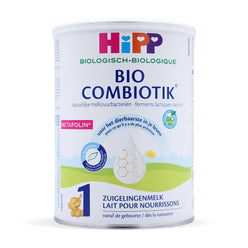
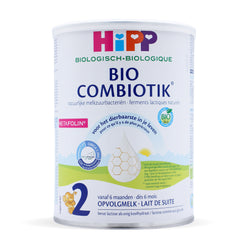
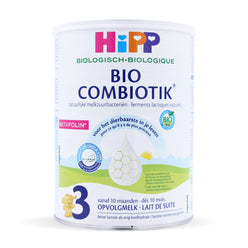







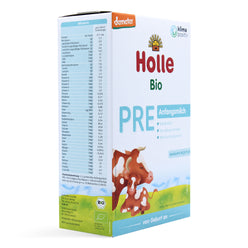

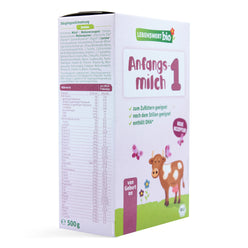
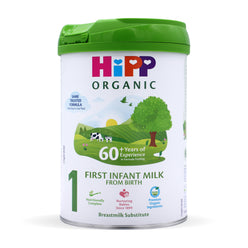
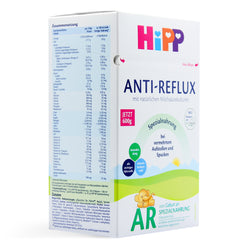
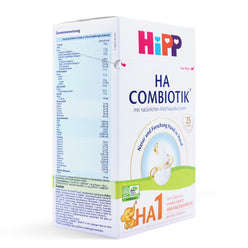
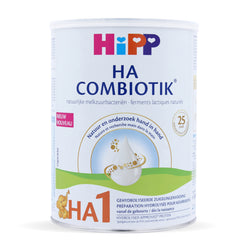
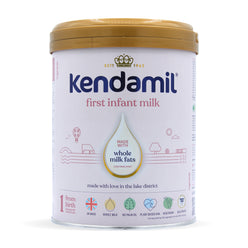
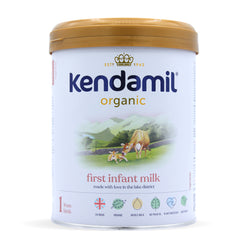
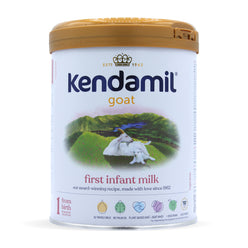
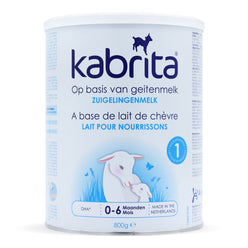
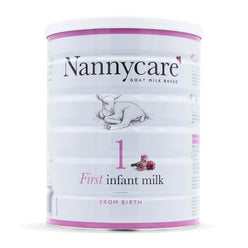
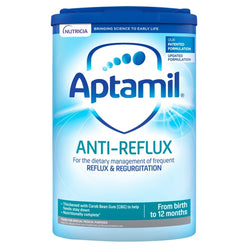
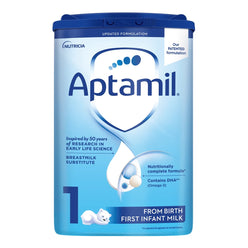
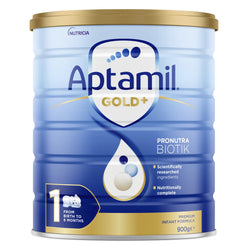
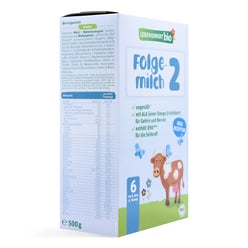
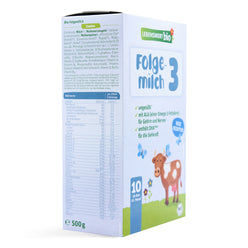


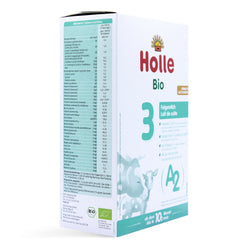


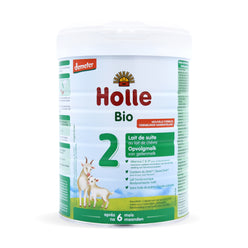
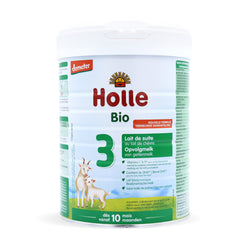
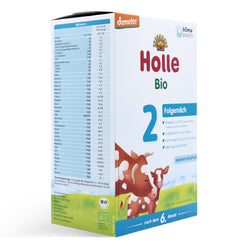
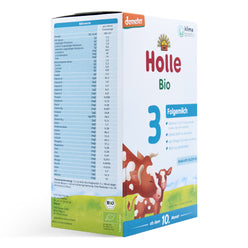
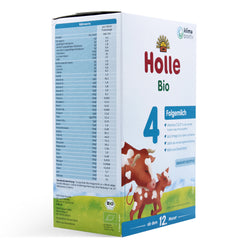
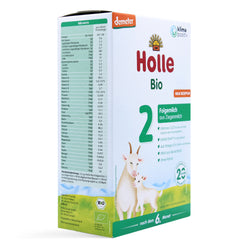

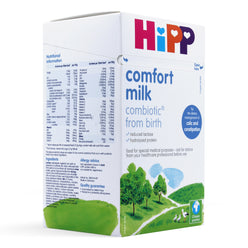
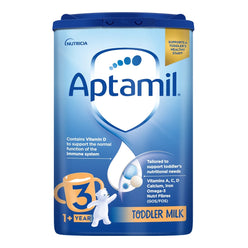
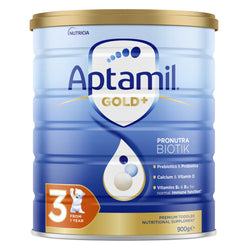
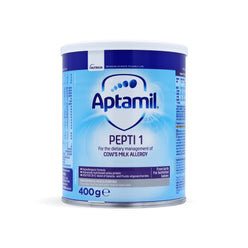
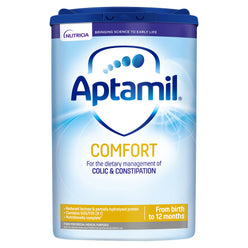






Santiago -
When I first became a parent, I didn’t realize how much things like iron and healthy fats matter for a baby’s brain and growth. It’s not just about keeping them full, it’s about making sure every feed actually supports their development. I also learned quickly that how you prepare formula or store milk really affects digestion and comfort. Finding a rhythm with feeding made life so much easier for both me and my baby.
Randal -
August 28, 2025
When my baby was struggling with slow weight gain, I wish I had known sooner about how important balanced nutrition really is. It would have saved me a lot of worry as a new dad.
Jamal -
July 31, 2025
I’ve heard so many conflicting tips about formula vs. breastfeeding and what’s “best.” Posts like this really help balance the noise with facts.